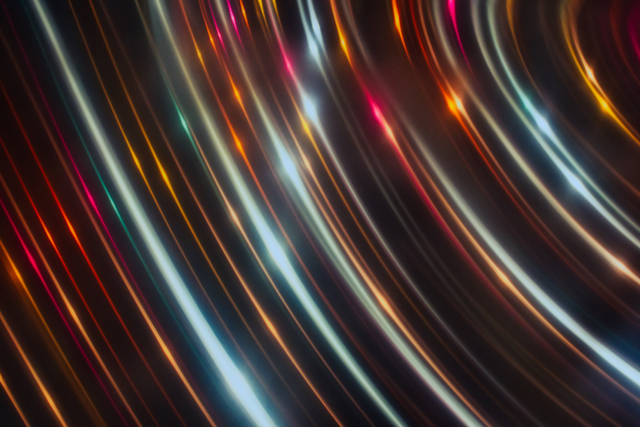Gracias a los descubrimientos del astrónomo Edwin Hubble de 1929 —corrimiento hacia el rojo en las líneas de absorción del hidrógeno del espectro electromagnético de las galaxias lejanas— pudo constatarse que el universo se está expandiendo. Se dedujo que tal expansión tuvo que haber partido de una gran explosión —Big Bang— desde un núcleo singular extremadamente denso, ocurrida hace 13.700 millones de años.
Para aproximarnos a la cuestión de la falsa antinomia entre fe y ciencia, se recupera la concepción de la Ilustración europea del Siglo XVIII, según la cual Dios había creado el cosmos, desentendiéndose posteriormente de él. Esta corriente de pensamiento postuló un mundo regido por el dinamismo autosuficiente de las leyes naturales.
“Hoy en día —afirma Claudio Bollini, profesor de la Universidad Católica Argentina y autor del libro El acontecimiento de Dios— muchos divulgadores y cosmólogos realizan desde su discurso científico una extrapolación cientificista hacia una visión atea del universo, haciéndola pasar, subrepticiamente, por una reflexión científica más. Así —agrega el titular de la cátedra Teología dogmática y fundamental— se transpone ilegítimamente los presupuestos epistemológicos establecidos por la propia cosmología, moviendo a confusión a aquellas personas que no poseen suficiente discernimiento crítico para percibir el cambio de perspectiva en el discurso. De este modo, el público medio puede llegar a suponer que, del mismo modo que la ciencia enseña el dato casi incontrovertible del Big Bang, afirma también la inexistencia de Dios.”
El razonamiento consiste en considerar que, dado que fue una gran explosión inicial lo que dio origen al universo tal como lo conocemos, entonces la hipótesis de un Dios que lo creó al principio de los tiempos se vuelve totalmente superflua. Se intenta refutar la concepción de un Dios Creador que se supone cristiana, “pero que —advierte el autor— es en realidad hija del deísmo de la Ilustración”.
Se plantea un dilema engañoso: o Dios ha sido quien creó todo al principio de los tiempos, o bien el cosmos empezó sin más con un estallido colosal, y evoluciona sin necesidad de recurrir al creador. El Magisterio de la Iglesia asume plenamente la consistencia de lo creado. Es Dios mismo quien dotó a todas las cosas de “firmeza, verdad, bondad, leyes propias y orden”, explica Bollini, y concluye que “nunca la actividad de investigar mediante métodos, si se realiza de modo verdaderamente científico, se opondrá a la fe, porque tanto las cosas profanas como los argumentos de la fe tienen su origen en el mismo Dios.”
Science and Faith I: the false dilemma of the Universe created by God or in the “Big Bang”
Thanks to Edwin Hubble´s discover in 1929 —movement to red in the absortion lines of hydrogen of the electromagnetic specter of faraways galaxys— could confirmed that the universe is expandinng. Based on Hubble´s discovers was deduced that which expansion started with one big explotion —Big Bang— in singular core extremely dense, 13.700 millons years ago.
For our draw near to the false antithesis between science and faith, is recovered the conception of european´s Ilustration. According to european Ilustration XVIII´s century, God had created the cosmos and he disengaged after of it. This think school postulate that the world to ruled by the self-enough dynamism of natural laws.
“Nowadays —say Claudio Bollini, Argentinian Catholic University professor and author of The God´s event— a lot of scientists and disclosing scientific make from his scientific discuorse one scientistic extrapolation toward one atheist vision of the universe, makinng it pass, surreptitiouly, how one scientist reflexion more. This way —add Bollini, in charge of cours about Dogmatic and foundational Theology— are tranposed illegitimately the cosmology´s episthemologics assumptions, carrinng on confusion to many people that have not enough ably to critical discerment to identify the change of perspective. Of this way, the midlle public might suposse that, the same form that the science teach the incontrovertible fact of the Big Bang, establish also the God´s inexistence.”
The reasoninng consist in consider that given that was a big explotion as gave origin to the universe such as we know, thereapon the hypotesis of the creator God was get turn totally needless. By means this kinds of reasonings It has been attempto refute the conception that is suposse Christian, of one God creator, but really is —suggest the author— an Ilustration´s deism.
Is propounded one misleading dilemma: or God has who created all in the begining of times or the universe started with one colossal explotion and are developing without need to invoke the creator. The Magisterium of the Church does assume fully creation´s consistency. Is the same God who gave to everythings “strength, true, goodness, own laws and order” —explain Bollini and conclude— never the research activity by means methods, if maked of mode trully scientist, will opossed to faith, because both the profane like arguements of faith have its origin in God.”
Fotografía: Espectro de hidrógeno, Adam Kring
Mauricio Yennerich

